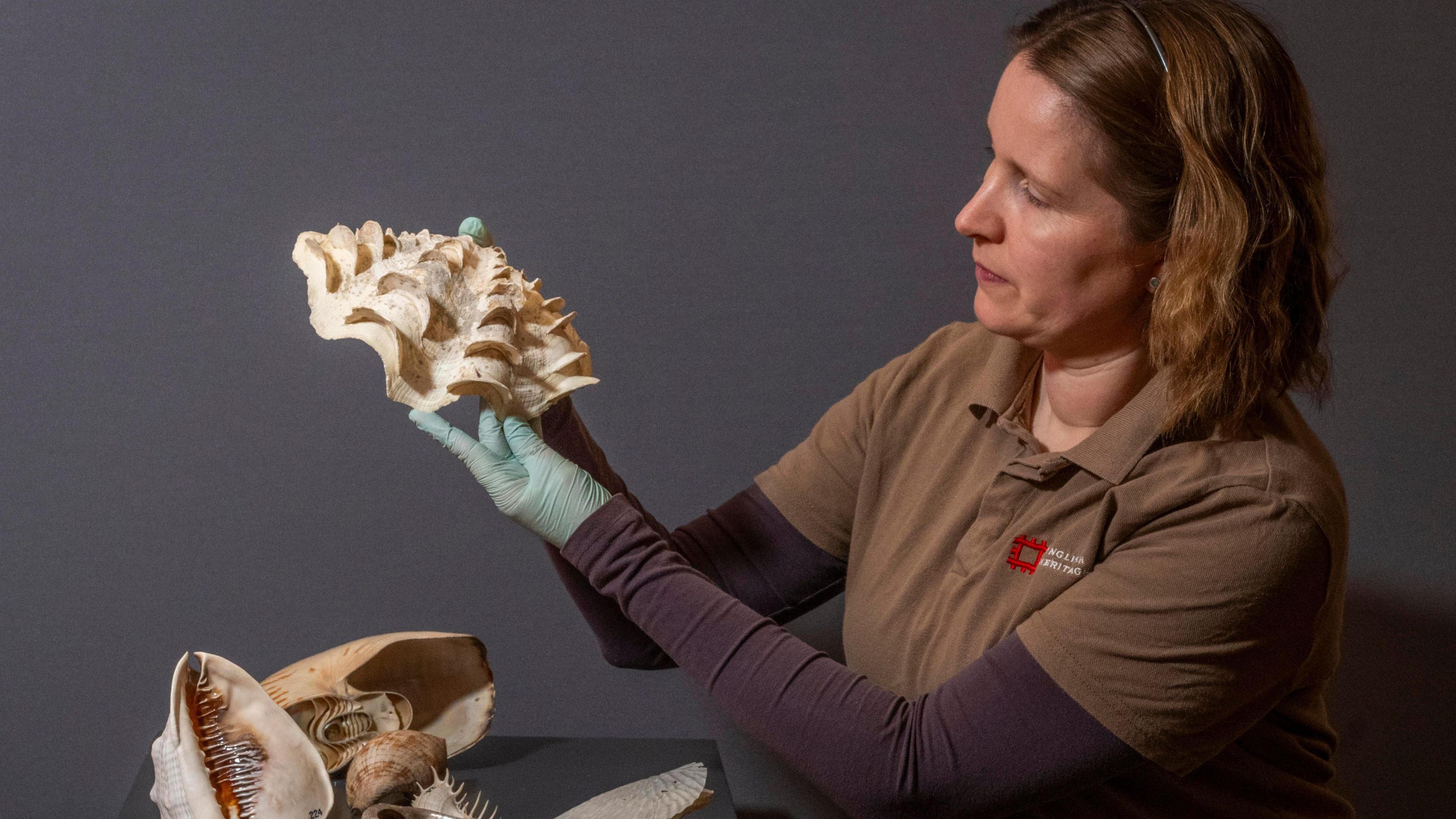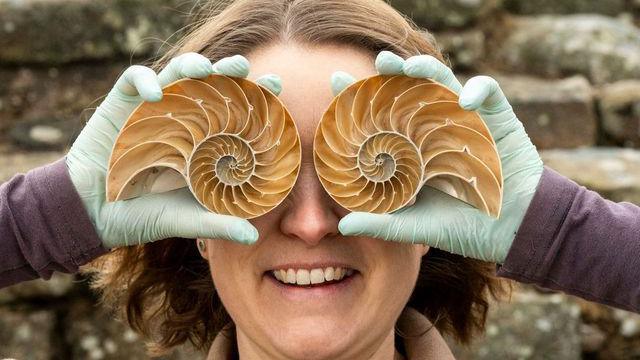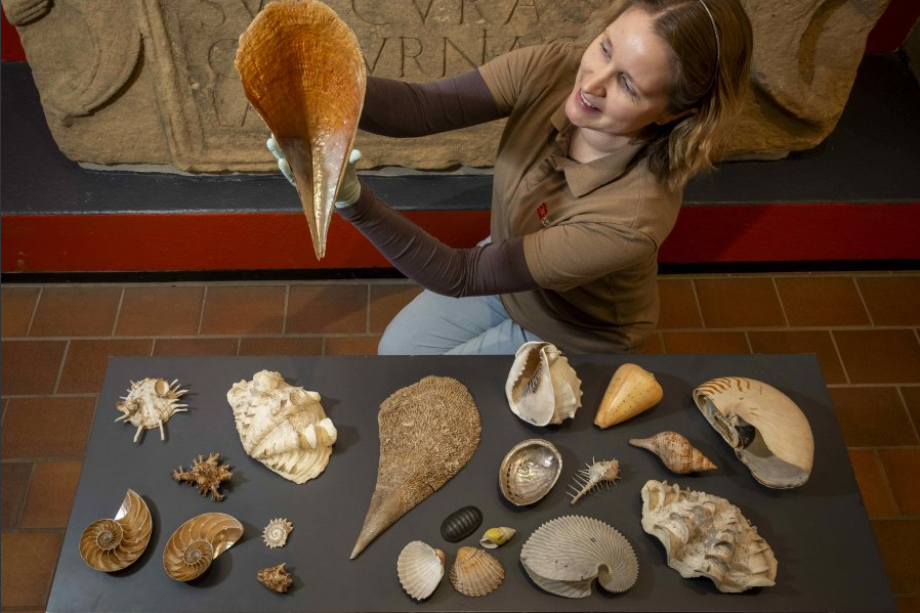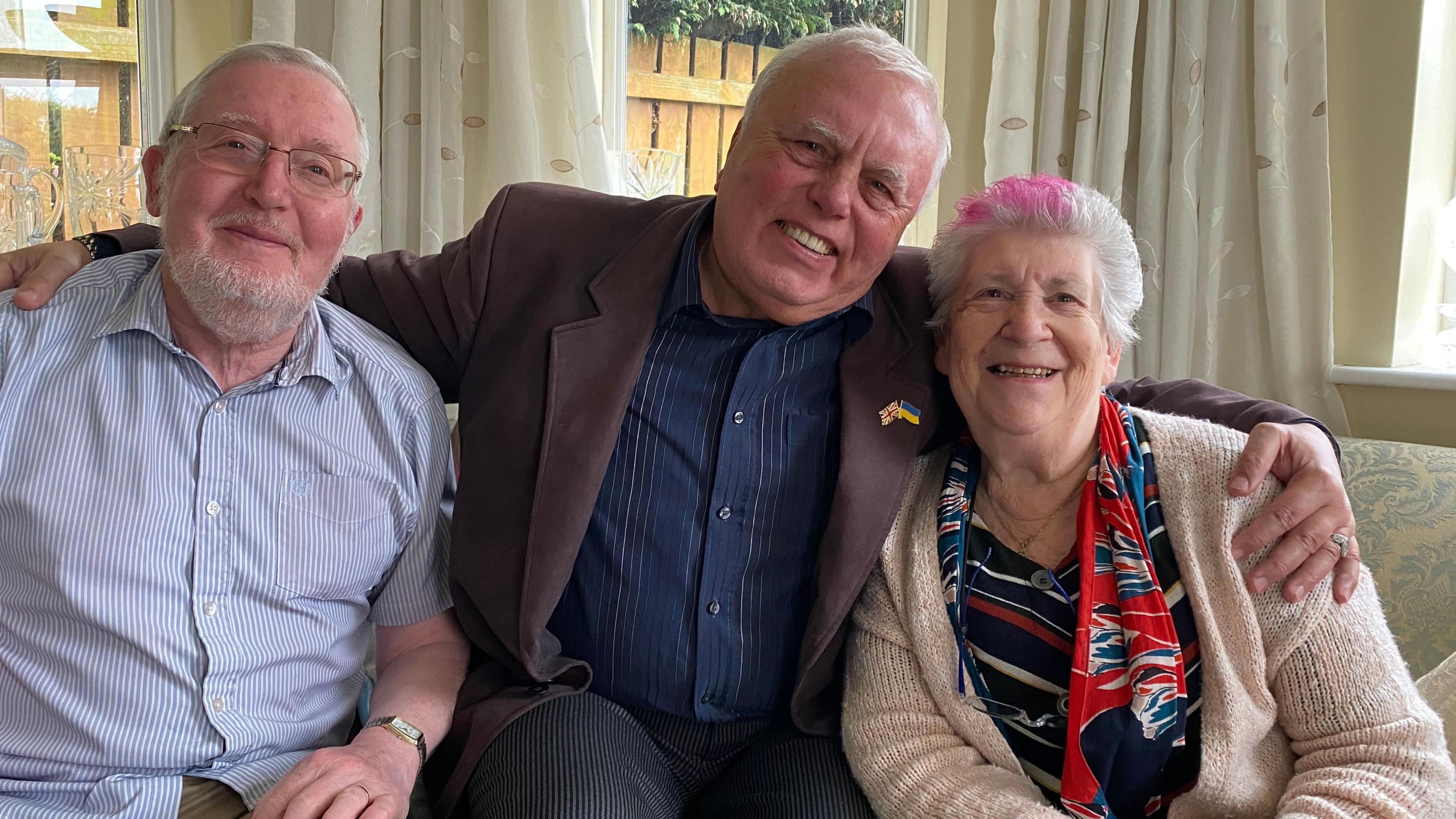Captain Cook shells saved from skip go on display

Frances McIntosh said Bridget Atkinson's 18th century collection has "global importance"
- Published
Shells gathered during Captain James Cook's final voyage will be displayed for the first time in 100 years after being saved from a skip.
They are among a historic collection that was thrown away when an office was cleaned out at Newcastle University in the 1980s.
Believed lost for decades, the shells resurfaced when the family of lecturer Dr John Buchanan, who reportedly saved them from the rubbish, donated them to English Heritage recently.
The collection will go on display at Chesters Roman Fort and Museum near Chollerford, Northumberland, on Wednesday.

Dr Frances McIntosh says Bridget Atkinson's collection is a "superb record" of human impact on the natural world
Described by English Heritage as a "remarkable record of Britain's role in global trade and its colonial reach in the late 18th century", the collection is made up of more than 200 specimens.
It includes an extinct species and several believed to have been sent back from Captain Cook's ill-fated third voyage.
The collection belonged to 18th century Cumbrian woman Bridget Atkinson who amassed more than 1,200 shells from around the world, despite never leaving Britain.
Her grandson John Clayton inherited the shells, which experts say would have been "extraordinarily sought after in the 18th century".
While most were sold along with her family estate in 1930, hundreds were displayed at Chesters Roman Fort before being loaned to the zoology department of Armstrong College, which is now Newcastle University.
Dr Buchanan's rescuing of the collection from a skip was inspired by his love of conservation, according to his family.
They said they were "delighted" to see the shells return to the museum to be enjoyed by future generations.

Dr Frances McIntosh, English Heritage's collections curator for Hadrian's Wall and the North East, said: "We’ve always known about Bridget Atkinson’s collection but had believed it completely lost.
"To discover that the shells have not only survived but been kept safe and loved all this time is nothing short of a miracle.
“Bridget Atkinson was a remarkable woman, with a real curiosity about the natural world."
Follow BBC North East on X (formerly Twitter), external, Facebook, external and Instagram, external. Send your story ideas to northeastandcumbria@bbc.co.uk.
Related topics
More stories from BBC North East and Cumbria
- Published11 March 2024

- Published11 March 2024
